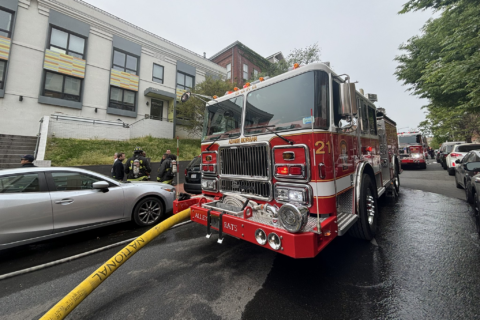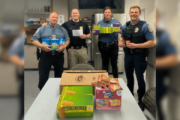There are both benefits and consequences involved in proposed regulatory changes for how food trucks operate in the vicinity of the National Mall, D.C. officials said.
Joining a new lottery and auction system will allow the trucks to have designated areas of operation without amassing an endless number of tickets from cars illegally parked in “reserve” spaces.
However, Ernest Chrappah, the director of D.C.’s Department of Consumer and Regulatory Affairs, said new rules would also include tougher enforcement.
Thirsty tourists traipsing on the National Mall might also find it easier to get a cold drink under suggested rule changes.
A proposed new Class E vending license would allow for the sidewalk sale of drinks from portable coolers. In the summer of 2017, images of teenagers getting handcuffed and detained by U.S. Park Police for illegally selling water on a sidewalk sparked outrage and went viral.
The proposed changes would also create a lottery system for permits to operate along the National Mall on weekdays between 10:30 a.m. and 2:30 p.m.
On weekends, permits to operate food trucks along the National Mall would be auctioned off to the highest bidder.
“We are effectively building on an existing lottery system that has worked in all parts of the city,” Chrappah said.
If the measure passes and food trucks in target areas are found to be operating illegally, there will be aggressive enforcement, he said.
“We’ll be towing your cars; we will summarily suspend your license, which means your license is suspended on the spot,” Chrappah said.
Licenses also could be suspended or revoked if a vendor has more than $300 of unpaid fines for parking violations that are more than 60 days old.
Chrappah said the proposed adjustments would:
- Make sure food truck entrepreneurs still get to make money.
- Ensure rush-hour lanes are open for traffic.
- Establish safer traffic flow for residents and commuters.
- Create revenue that can go toward enforcement.
“What we’ve done is take a very difficult problem, work with the community, (and) work with the food truck vendors to come up with what we think is a practical and sensible solution,” Chrappah said.
You can see specific details on the proposed regulatory changes and provide feedback through March 15.








